A New EDS Clinic Coming to a Town Near You (Via Telehealth)
Chronic Pain Partners is excited to speak with David Jameson Harris, a former McKinsey consultant, about his latest project, a new Ehlers-Danlos syndrome clinic, hopefully offering access to expert EDS care in several states starting in February 2024. CPP’s Karina Sturm spoke with David Jameson Harris about his new EDS clinic, his goals, and how patients can access care there. (This article was first published on CPP’s site: https://www.chronicpainpartners.com/a-new-eds-clinic-coming-to-a-town-near-you-via-telehealth/)
Karina Sturm:
Hi David. I am so glad we get to talk again about your new EDS clinic which will open soon! Can you tell me a bit about your background? And what’s your connection to EDS?
David Jameson Harris:
I’ve done a lot of different things. I worked in strategy consulting
for a major consulting firm for most of my career. I was helping big companies develop a strategy and decide what they should do for the next ten years. It’s interesting work, but it’s not very impactful. So, I wanted to use my skills for something more meaningful. Regarding my connection to EDS, I grew up in Indiana, which is interesting because there are a lot of
Ehlers-Danlos syndrome experts here, more than anywhere else in the world. Coming from a family of doctors in Indiana, many of my family members have been seeing EDS for a long time. Awareness here is a lot higher than in other places. Some of my family members have been diagnosing, treating and managing the conditions for over a decade. However, in so many cities, nobody diagnoses or manages EDS.
When I first heard about EDS from my family, I could not believe there are millions of people out there with the condition that can’t get care. I looked around in Indiana, and even with all these experts, not enough doctors were treating it. Then, I looked wider across the US and the world, and it seemed like an epidemic.
Sturm:
Was that when you came up with the idea of building an EDS clinic, or how did that happen?
Harris:
First, I started talking to people with EDS and doctors who treat it, trying to understand the problems and why they exist. The most significant seemed to be that doctors weren’t willing or able to treat it, or, if they did, they didn’t take insurance. I don’t blame them either, insurance is really hard these days.
Even if we can’t cure EDS, we can do a lot to improve the quality of life and prevent more severe problems from developing., and it’s not so different from other conditions. We’ve known about diabetes and cancer for decades, but we still don’t know how to cure them. If you look back, it’s incredible that cancer was ignored in the past because today, it’s all we talk about. All the money in healthcare is going into finding cures for cancer.
Sturm:
So, what’s your goal for EDS patients right now?
Harris:
Right now, my goal is to ensure patients nationwide have access to care for EDS and whole Trifecta or Triad of MCAS, POTS, and EDS. I want to ensure that doctors have the support and training they need to help patients. That’s very achievable today. Whether it’s Ehlers-Danlos Syndrome or any of the comorbidities like MCAS, POTS or Long Covid, we don’t know everything, but we know enough to manage it. However, it’s such a specialized field that the average doctor needs help keeping up with all the research related to EDS and comorbid conditions.
Sturm:
That is very accurate, but the big question is, how will you do that? Please give me some insight into this new clinic and how it’s supposed to work. How do you give everyone with EDS access to doctors or to care?
Harris:
During the pandemic, many business models and technologies were built out for telemedicine. We can’t do everything over telehealth for EDS, such as Physical Therapy or injections. However, most of the EDS diagnosis, treatment, care management and checking-in on patients can be done remotely, which changes the game. But in the US, our medical system is state-by-state. Unlike other countries, where it’s a national system, here you have to go one state at a time, making it a lot slower to roll out. So we’re focused on building density in a few states first, particularly around the Midwest, and then expanding nationally. We want to ensure we can accept insurance because it’s a big part of access for many patients. Even if patients have an expert in their state, those experts rarely take insurance. And if they do take insurance, they don’t accept Medicare and Medicaid, which is a significant portion of the population.
Sturm:
So, to summarize, you’re setting up a telehealth clinic where you try to acquire all the EDS experts in the US, if possible, who work all in that clinic, and then every person with EDS has multiple experts to choose from with their insurance paying for it. That sounds like a dream!
Harris:
(Laughs). That sounds like a good plan, but we have to step back one level. We’ll not be able to hire all the experts, but we have a lot of experts who are willing to contribute and provide advice or consult with the doctors who are seeing the patients. So many technology companies are trying to change medicine with an app or AI, but we really just need more knowledgeable doctors. We know there are a lot of doctors out there who want to do more to help people with Ehlers-Danlos. They may not be experts yet, but they want to learn because they really care about our community. We are empowering those doctors with a team of experts, the latest research, and administrative support. We want to make sure those doctors have all the support they need to learn and treat as many people as possible.
Sturm:
Do you already have doctors on board?
Harris:
We’ve already got a few well-known advisors. We also have a couple providers who are relatively new to treating EDS but are committed to learning and supporting the EDS community. We’re talking to several doctors in multiple states about potentially joining as well. Initially, part-time and building up from there, hopefully filling up their schedule. I’m not too worried about these doctors having enough patients.
Sturm:
(Laughs). Yeah, neither am I. They will probably be booked years in advance because we all are desperate for good doctors.
Harris:
Many PCPs I spoke to see at least one patient with hypermobility per week, but they don’t know where to send these people. They may send them to the EDS Center of Excellence at Tulane or Mayo in Florida, but other than that, there are not too many centers that the average doctor is aware of.
Sturm:
Would it be possible for people out of the country to see doctors at your clinic? EDS care needs to be improved in Germany, like in many other European nations. Lots of people would greatly benefit from an international EDS clinic.
Harris:
Eventually, yes. It’s possible to provide educational coaching or advising internationally via telehealth, but it might be more complex regarding medical care, like prescribing medications. For now, we are focused on the US.
Sturm:
Yes, but for many patients, getting some guidance and suggestions for management is already super helpful. A good letter from an expert to the PCP would be enough because the local PCP, who might not know much about EDS, can learn from the expert and prescribe the suggested medication or braces nationally on local insurance.
Harris:
Even if we can’t have a US doctor treating a patient in Germany, we can take the same telehealth model and replicate it in Germany or Europe.
Sturm:
Are you promising that you will also set this up in Europe? (Laughs). I will hold you accountable.
Harris:
I would love to. The US might be one country, but it’s more like the European Union regarding health care regulations. Every state is essentially a different country. You have can have an insurance contract in Indiana, Michigan, or Oklahoma but it won’t carry over to other states, for instance. By the time we get to 50 states, we’ll be ready to take on the regulatory challenges of a new country. It probably wouldn’t be too much.
Sturm:
When will your clinic officially open?
Harris:
We’re aiming for January, but it depends on the providers who join and a few other operational things. It could be delayed to February, but I don’t see it opening much later than that. When we’re open, we’ll be able to see patients across the Midwest of the United States – in some states with insurance and others not. And then, hopefully, in Texas and Oklahoma as well.
Sturm:
And then you plan to include the other states after a while, or what’s the long-term plan?
Harris:
We plan to open in all 50 states as quickly as possible. How quickly we roll out to other states depends on how much interest we get from patients. If we see, for example, Montana has no doctors who treat Ehlers-Danlos Syndrome, and patients from there have already reached out and said they need help, we would work towards entering that state. At the very least, we could pretty quickly provide consultations to doctors, like a primary care doctor, who could then treat the patient.
Sturm:
How can we best support your efforts?
Harris:
If you want to help us, please tell your local EDS communities about our efforts. If you or your local community needs better care for EDS, MCAS, POTS etc., come to our website and let us know where you are and what expertise you need there. We will plan our growth into new states based on the number of requests we receive from that state.
If you’re a doctor, provider, or medical professional of any kind, and you want to help the EDS community, please send us a message to tell us what skill set you have and how you would like to help. We will try to find a place for you.
Sturm:
OK, we will make sure to spread the word! We are already at the end of this interview, but before we hang up, you must tell me how you became a national Chinese TV performer. I read this on your LinkedIn profile.
Harris:
I tend to get deeply interested in specific topics, and when I decide to do something, I go all the way. I had learned Spanish growing up. When I went to college, I thought I should make use of classes to learn a new language. It came down to Arabic and Chinese. I ended up picking Chinese, and in order to learn, I started using music. When I got to Beijing, I tried to immerse myself in the music community there. So I was performing and playing with a band, and after many months of learning all these Chinese songs, a friend dragged me out to try out for an American Idol-type show. We made it as a duo and performed on different shows. Many were focused on raising money and awareness for cancer. The friend I was singing with, a 45-year-old guy, lived next door to me and sold street food. We would play guitar together. Sometimes, I’d cook with him. He had a niece who had leukemia. As a migrant laborer without access to health care, their family couldn’t afford medical treatment. I don’t often bring it up in interviews, because it can be hard to talk about, but a big part of what we were doing is raising awareness and money, getting donations for his brother to help pay for the little girl’s cancer care. They didn’t have access to free public education or healthcare since they weren’t from the city so in his son’s final year of high school – he had to decide whether to pay for his own kid’s final year of high school or to pay for his niece’s medical care.
Sturm:
That’s very kind of you, and it also seems like this situation made you the best person to set up this EDS clinic.
Harris:
I’m sure my experiences have prepared me for this in some way.
Sturm:
Thanks so much, David! As always, it was a pleasure talking with you.
Harris:
Thanks, Karina! Talk to you soon!
Find out more:


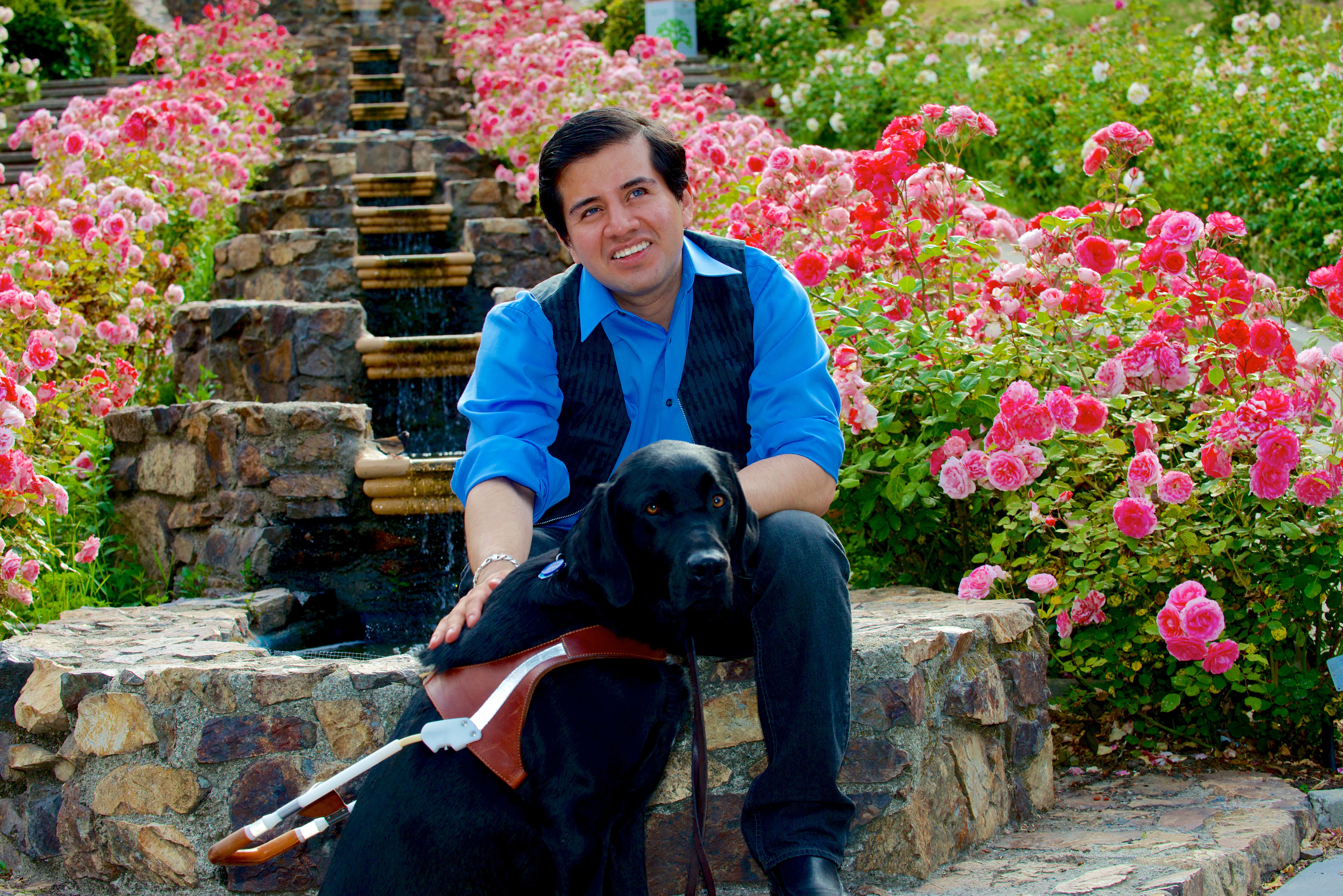
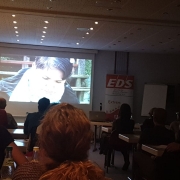 Jürgen Grunert
Jürgen Grunert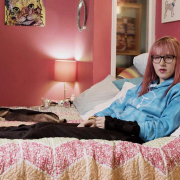
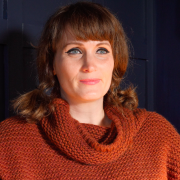
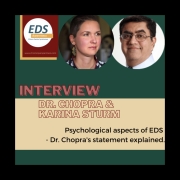


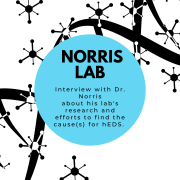
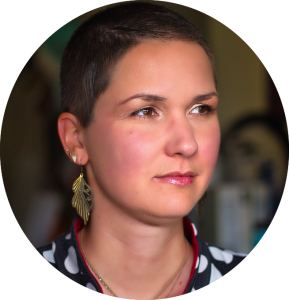


Leave a Reply
Want to join the discussion?Feel free to contribute!